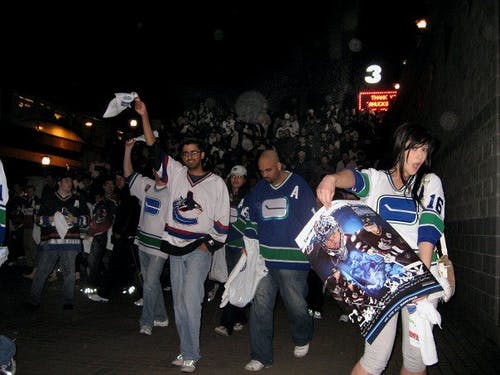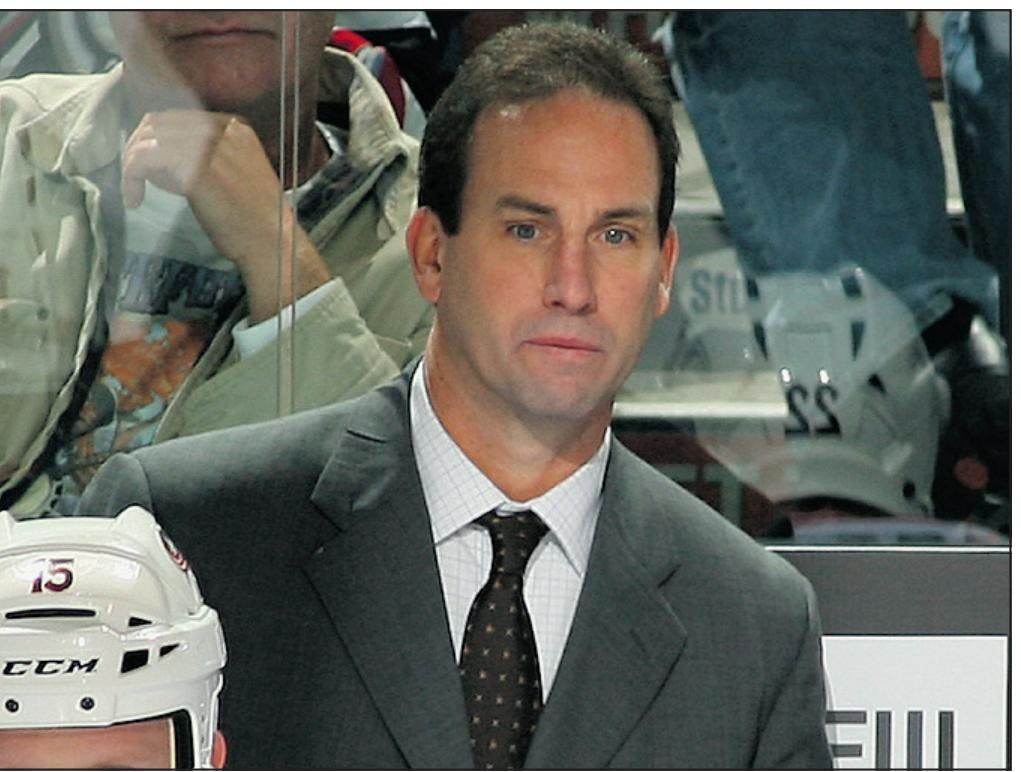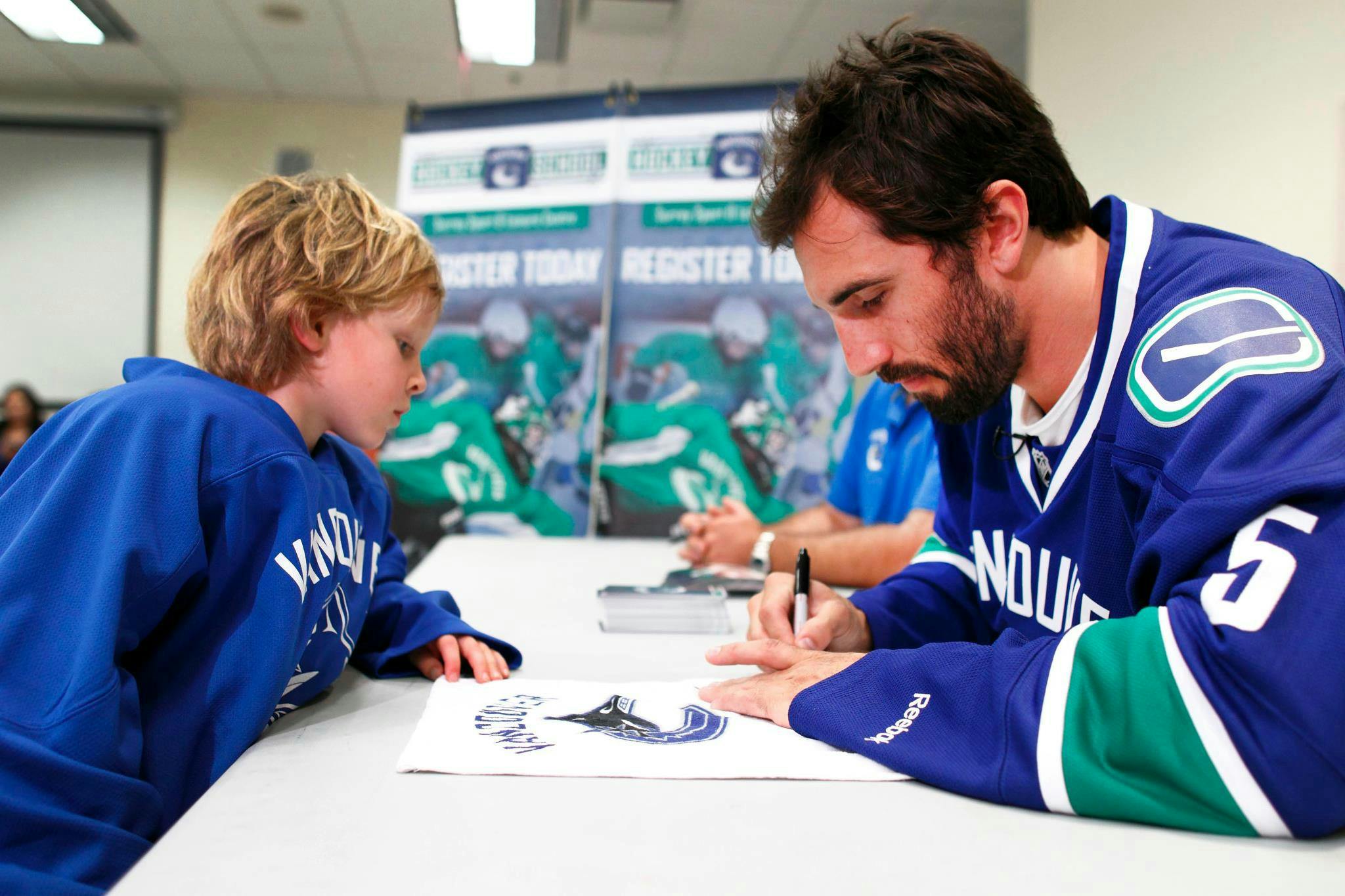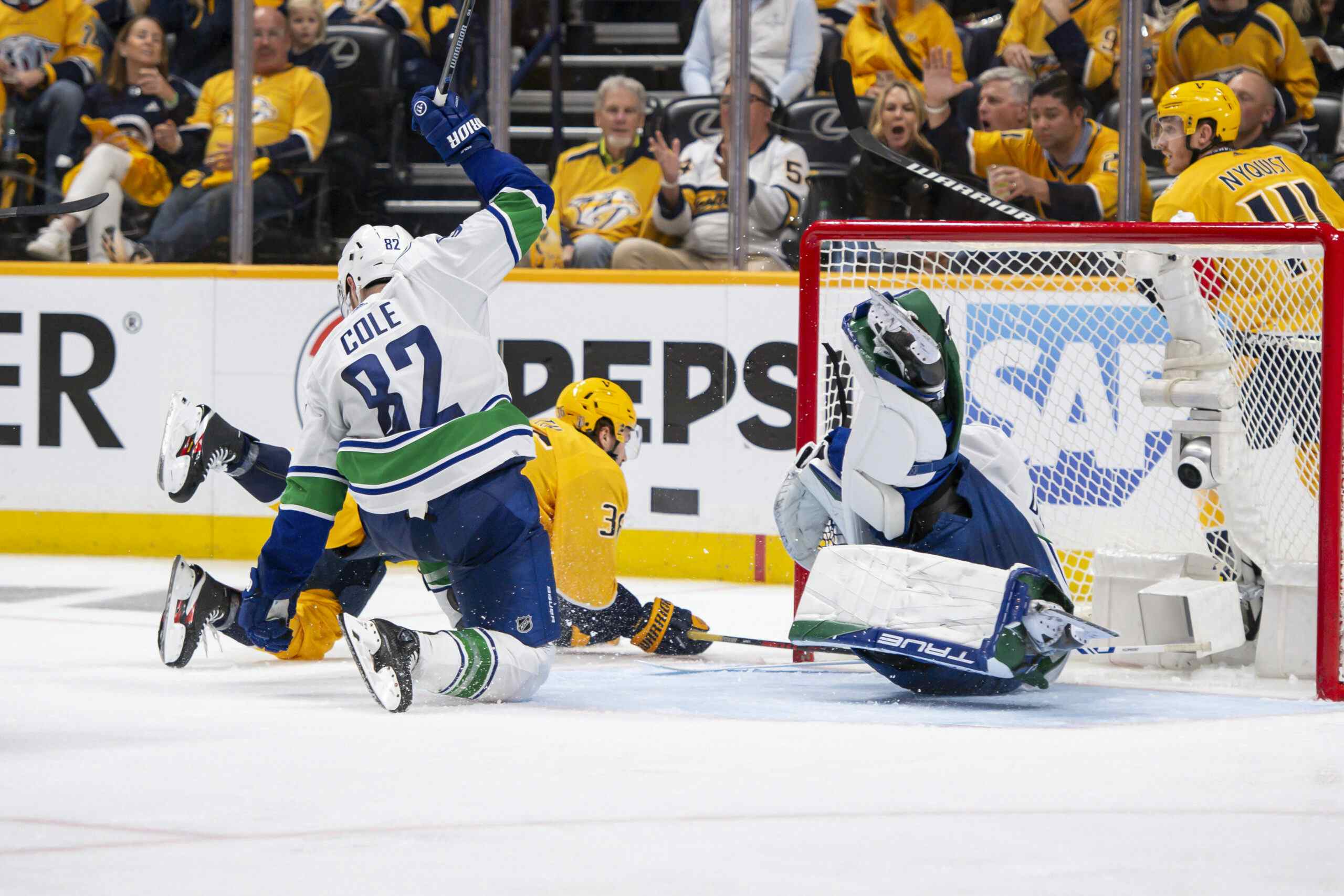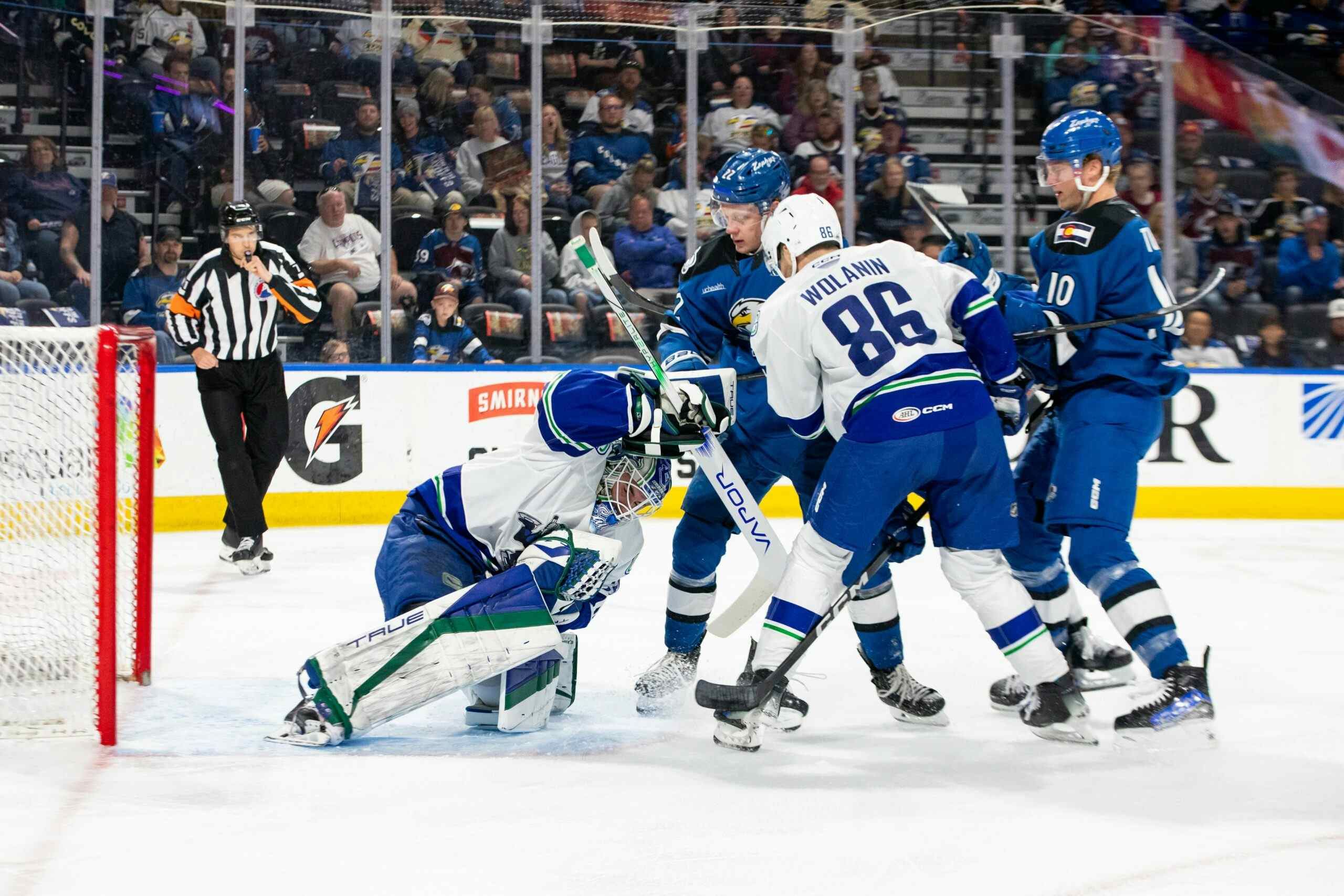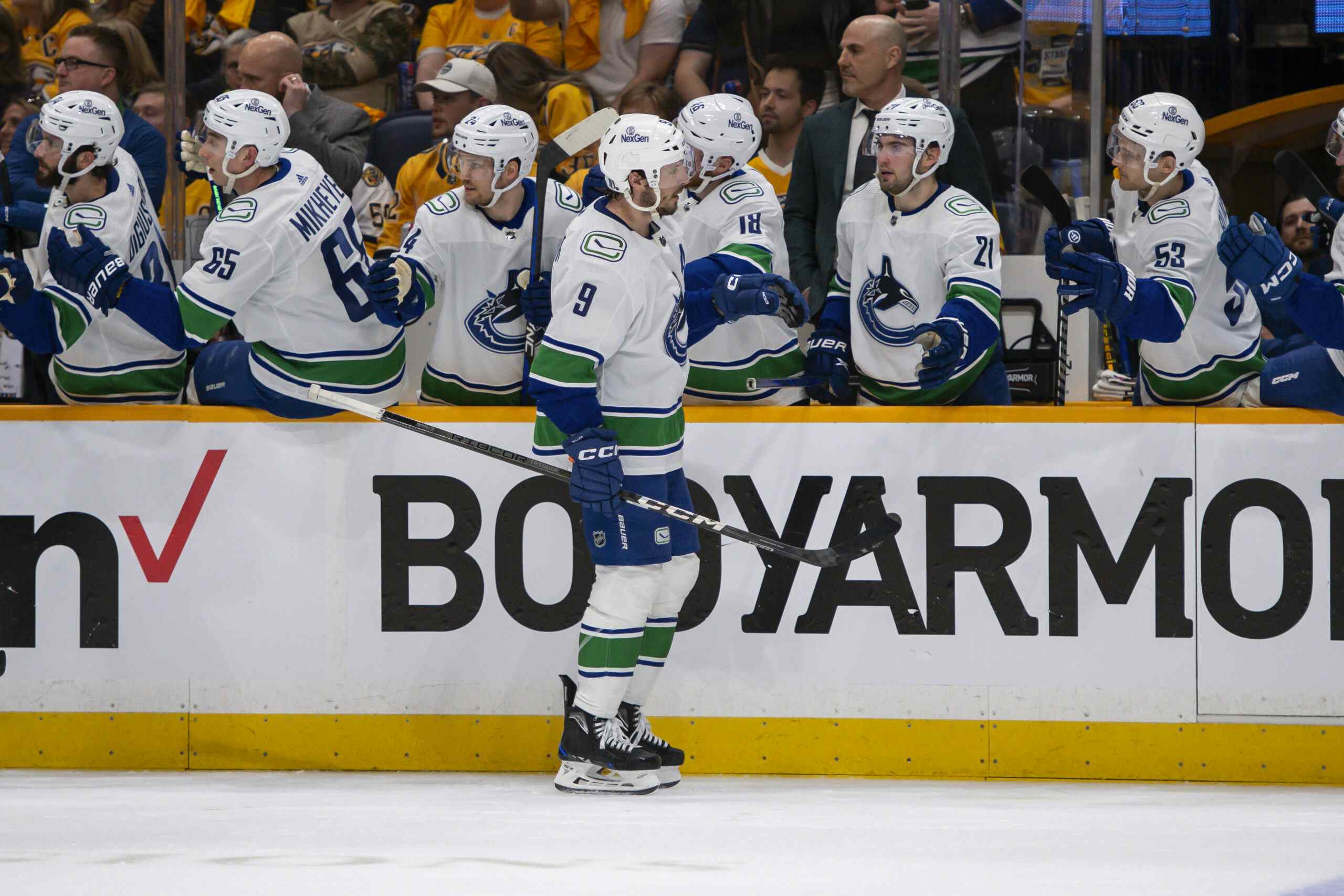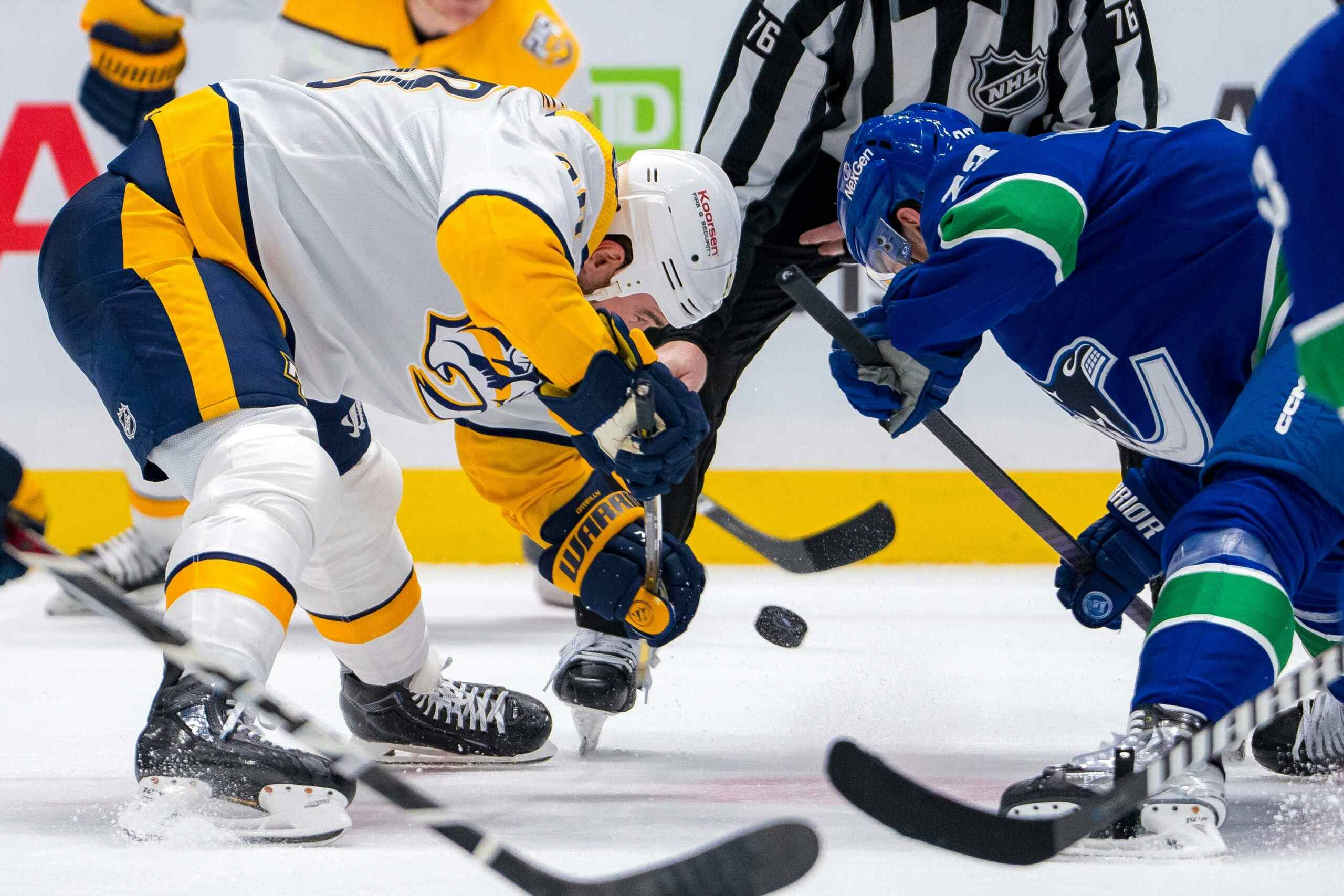The Week of a Canucks Bandwagoner
In Vancouver, a veritable mecca of hockey controversy, the term “bandwagoner” can be controversial in and of itself. Even the origin of the word is controversial. It is widely accepted that the term began with Dan Rice parading a popular politician around on a circus wagon, but that may not be the case. To make this clear, I define a bandwagoner as any fan that follows most of the following guidelines: (read past the jump for those guidelines and more!).
- PDS, (Public Displays of Support) when the team is doing well enough
- Distances his or herself during periods of relative disappointment
- Reacts strongly to any event, significant or not (Kassian played amazingly/poorly, he is the next Bertuzzi/bust)
- Has extreme views on most things related to the team (MG should be fired for not trading Schneider/Luongo!)
- Is sure of his or herself and difficult to reason with (I am a way better coach than AV, put Ballard on the top pair!)
- Believes he is not a bandwagoner.
- Note: Jumping on the bandwagon is a different phenomenon when an event takes on meaning beyond sport, such as the 2010 Olympics or when the Canucks reached the Stanley Cup Finals.
In my experience, the amount of bandwagoners that follow the Canucks is massively overstated. In addition to true bandwagoners, of which there are unquestionably several hundred-thousand, there is a vocal minority that will criticize the Canucks any time things go badly, but go quiet when things are going well. We call them the fatalists. Then there’s another minority that is overly boisterous when the Canucks are excelling but go just as quiet when things take a turn for the worse. Those are the fairweather bandwagoners. Frequenters of bars, forums and other places of Canucks discussion can mistakenly assume that because people are exuberantly praising Edler one day, and then calling for benching him the next, so Vancouver must be full of bandwagoners, when In fact, those are mostly completely different groups of people!
Unfortunately, observing one of those two extremist camps is where many bandwagoners seem to originate. Young fans just assume that bandwagoning is the norm and then become real bandwagoners themselves. It’s a negative feedback loop, and it can be difficult to resist the temptation.
With that out of the way, I will attempt to examine popular Bandwagoner perceptions of the week’s events. We’ll then break down those topics in a more reasonable, rational way – as you’ve come to expect elsewhere at Canucks Army. But this is your concentrated dose and for such a shortened season, there is an abundance of topics to choose from and my fellow writers have covered many of them thoroughly. Feel free to submit a topic for next week by posting a link to a forum.canucks.com discussion that has gained enough controversy (bonus points if it is your post, negative 1,000,000 bonus points if you are a troll). Since this is my first week writing the column, I will examine events that extend further than the past week, as long as they are still relevant.
Canucks prospects are being ruined in Chicago! Stan Bowman is paying Arniel to sabotage the team’s future!
This isn’t your usual bandwagoner sentiment, since knowing the name "Stan Bowman" and knowing enough about Canucks prospects to understand their expectations and how some are underperforming isn’t typical of a "bandwagon fan". Still I wanted to tackle this one head on.
Some very intelligent, reasonable people have taken the stance that Arniel is being told by Chicago Wolves brass (not the Blackhawks, assuredly) to disregard the development of Canuck’s prospects and focus solely on winning. At first glance, it is a reasonable enough argument that it deserves further examination.
To begin, we should probably examine how well the Canucks are served by having their prospects breathe in the air fouled by the exhalations of the Blackhawks so that we should see what exactly we know about how our prospects are doing. Unfortunately, what we know is much less than what we don’t, and we don’t have a database of stats to make comparisons with. Put simply: stats tracked in the AHL make the NHL look like FanGraphs. Still, I was able to compile some data that should shed some light on how Vancouver’s prospects have performed in Chicago when judged against how they played when the team’s AHL affiliate was located in Manitoba…
Below are some stats from the last three years of Canucks AHL affiliates. The current Wolves’ stats are projected over the rest of the season and the Moose’s stats are adjusted for the fact that they played 4 more games that season than the Wolves will this year. Also the PDO number is an estimate – the AHL doesn’t seperate shot data by game state, so that number takes into account total shooting and save percentage…
| Wins | Points | Goal Dif | PDO | |
|---|---|---|---|---|
| 2012-13 Wolves (Projected) | 38 | 85 | 6 | 1.003 |
| 2011-12 Wolves | 42 | 91 | 23 | 1.016 |
| 2010-11 Moose (adjusted) | 41 | 89 | 17 | 1.063 |
Looking at the data above, it would seem reasonable to conclude that last season’s Wolves of should have gotten more slack from Canucks fans. MacTavish’s Wolves were, simply put, much better than the current Scott Arniel coached edition (the major qualifier here is that the AHL was a much more difficult league to play in than usual from October through January). Last years Wolves were also even better than the last season played by the Moose, who seem to have crystallized nicely as a prospect haven in the minds of Canuck fans and bandwagoners alike…
Another point is that the makeshift PDO of the Moose is higher over an entire season than any PDO I could find from any AHL club over the last 5 years, and by a significant margin at that. So the 2010-11 Moose were crazy lucky and still didn’t get the results the 2011-12 Wolves did…
So the Wolves have been about as good as the Moose, but how much have Canucks prospects contributed to that success? To try and answer that question, I put together another table with some interesting stats.
A few notes first, “Can” means Canucks signed players, including Vandermeer, Desbiens, and the like, while “AHL” is anyone signed to an AHL only deal with the Wolves (or the Moose before them). Since the AHL doesn’t make time-on-ice statistics publicly available, I decided that seeing what percentage of goals were scored by each group would be the best stand in, serving as a way to approximate playing time. If anyone would like to see it done differently, please post a suggestion in the comments and I will update it next week.
| %GP-Can | %GP-AHL | %G-Can | %G-AHL | SV%-Can | SV%-AHL | |
|---|---|---|---|---|---|---|
| 2012-13 Wolves | 70 | 30 | 59 | 39 | 0.907 | 0.919 |
| 2011-12 Wolves | 61 | 39 | 52 | 48 | 0.925 | 0.92 |
| 2010-11 Moose | 58 | 42 | 63 | 37 | 0.926 | 0.909 |
What’s jarring for me, is that Canucks players appear to have played a significantly larger number of games for the Wolves this season than they did the year prior or even during the last season of the Canucks’ affiliation with the Moose! Even if you take out the games from Vandermeer, and Joslin, the number of man-games the Wolves have recieved from Canucks assets only drops to 63%, which is still more than in 2011-12 year or the year before.
For whatever reason, the Moose are seen as a panacea of prospect development, but that might be hiding their faults as they played Canucks signed players the least. I also found no evidence that Arniel has been "overplaying" Wolves’ players as some Canucks fans frequently insists he does…
Based on the data, rather than the issue being playing time, it’s more likely to be the quality of the prospects getting ice-time in Chicago. Canucks prospects are playing more with the Wolves, but they are scoring less per game then they were with the Moose. Whether that is Arniel’s fault or not is a debate for another article (but I’m pretty skeptical)…
Garrison was a terrible investment! Another overhyped Florida player!
For some time, this was one of the most popular bandwagons in town. Up until very recently, Garrison was getting thoroughly lambasted. Despite the best efforts of the fine folks writing here, nothing could really be done. When Garrison misses his shots, it is noticeable. NHL players are felled, the boards crash, and iron rings. Now, it has become one of the appealing parts of Garrison’s game.
Back at the beginning of this season, however, it was just another reason why Jason Garrison would never live up to his contract. Which, by the way, isn’t actually bad at all even for an unrestricted free agent….
Before Garrison became Brian Campbell’s designated hitter in a contract year, he was Florida’s Dan Hamhuis. By the underlying numbers – which are especially useful in measuring quality defense – Jason Garrison has been one of the best defensive defenseman in the league for the majority of his time in the NHL. An argument could be possibly somehow be presented (I guess) that because he was on the Panthers, his elite defense was an illusion. But really, how does that make any sense?
Even if you don’t buy that Jason Garrison is one of the best defensive defenseman in the league, he is at least a "very good" defender with good offensive upside. When they Canucks signed Garrison, they bought a durable Sami Salo, not another Ehrhoff. Unfortunately, that wasn’t how the signing was viewed by some Canucks, and the criticism rained down…
Lately, Jason Garrison has been getting a lot more praise, if maybe for the wrong reasons. The goals have been coming along, and Garrison has been one of Vigneault’s defensive anchors along with Dan Hamhuis and Chris Tanev. The latter in this case, matters more than the former…
While Garrison has become a fan favorite again, I would still caution against potential bandwagoning on this topic. Judge a defensive defenseman on his shutdown defense, and take his offense as an awesome bonus. The way variance works, there could always be a quick reversal of opinion in this fickle market if that offense suddenly dries up…
Luongo’s contract sucks and should be torn up!
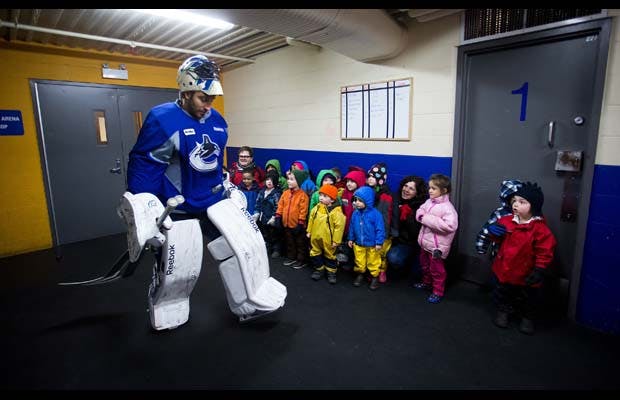
Photo Credit: Darryl Dyck , THE CANADIAN PRESS
Such extremist attitudes are only held by true bandwagoners. No consummate professional, lifelong Canuck, and supporter at every turn could ever reasonably feel that way about a 5.3 million dollar average contract for an elite goaltender! Oh wait.
Recent articles from Austin Wallace

